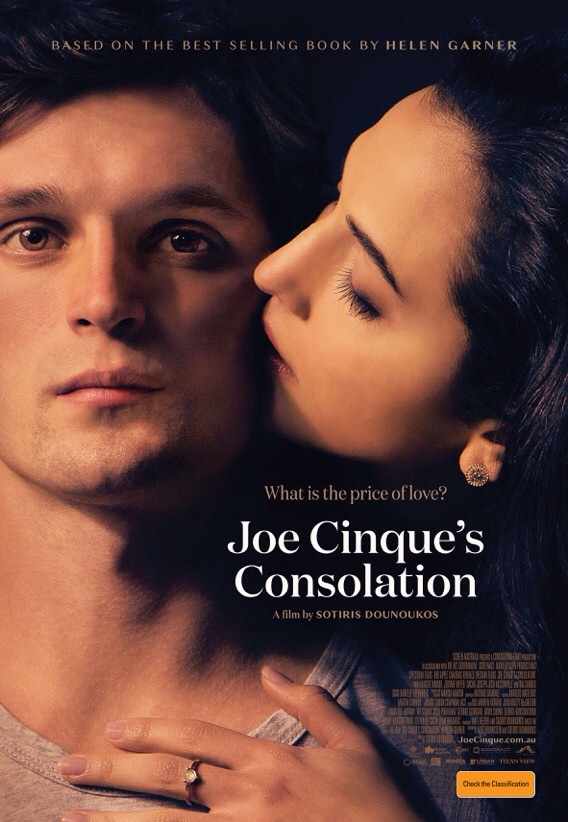

Joe Cinque's Consolation (Sotiris Sounoukos, 2016) wr. Sotiris Sounoukos, Matt Rubinstein from memoir by Helen Garner; Maggie Naouri, Jerome Meyer, Sacha Joseph, Laura Gordon, Gia Carides; crime, murder
This film is not an adaptation of Helen Garner's book. It may have got the facts about the murder from it - which is just a lazy way of doing research. Garner's book is a memoir: it is much more about her, Helen Garner, and the Cinque family, than it is about Anu Singh's 1997 murder of Joe. The film should have had a different title: there's no consolation in it.
Not much interest either. We don't get much insight - well, OK, I didn't - into why Singh acts the way she does, nor why her friend Madhavi Rao helps her to the extent she does. Particularly with watching it on 'free'-to-air TV with almost as much time for commercials as for film: I was bored.
The music was quite nice.
The debut feature of director Sotiris Dounoukos ... is told from a detached, matter-of-fact perspective; cold or even clinical. The film’s surface is loaded with mid shots, as if nudging us little by little away from the heart of the drama. A restrained bunch of performances – which is not to say they are bad or ineffectual – maintain what feels like a stony-eyed pokerface. But when it comes to pairing Dounoukos’s work with Garner’s, tonal differences aren’t the half it. Luke Buckmaster, Guardian.
A supremely disturbing and perplexing Australian crime from 1997 gets splashed onto the big-screen in Joe Cinque’s Consolation. The promising first feature by helmer and co-writer Sotiris Dounoukos methodically details how Canberra law student Anu Singh sedated then deliberately administered a fatal dose of heroin to boyfriend Joe Cinque while friends aware of her deadly plan failed to intervene. Driven by an impressive performance in her feature debut by Maggie Naouri as the damaged and dangerously manipulative Singh, Joe Cinque’s Consolation offers a moody and compelling study of the facts while leaving audiences to draw their own conclusions to the burning question of why people would act like this. ...
The film starkly presents the dereliction of responsibility by those with inside knowledge of the plan. Discussing suicide and murder as if they were abstract intellectual concepts or simply a form of entertainment, associates including weak-willed Len (Jackson Tozer), heroin addict Bronwyn (Eva Lazzaro) and insecure dropout Tanya (Laura Gordon) simply do nothing. In particularly chilling scenes, Anu easily acquires the fatal heroin dose by stating her intentions clearly to Saul (Jacob Collins-Levy), a smarmy law school student who casually sells narcotics while watering the garden of his large suburban home. ...
Cinematographer Simon Chapman (The Loved Ones, 2009) contrasts his warm lensing of intimate scenes with deliberately plain imagery of Canberra’s flat and uninteresting suburban landscape. Antonio Gambale’s fine score slides nicely from bouncy rhythms in early, happy times to brooding soundscapes as Singh’s monstrous plan takes shape. All other tech work is solid. Richard Kuipers, Variety.Eliminating all the complexities that could make the film a gripping ride into a singular aspect the human psyche as well as a fascinating glimpse into the limitations of our justice system, Dounoukos has drained the film of its potential impact. There is none of those aspects here, and the result is a rather meaningless affair, directed with little flair and the editing allowing too many slack, empty moments. Andrew Urban, urbancinefile.
Garry Gillard | New: 10 January, 2017 | Now: 12 June, 2020